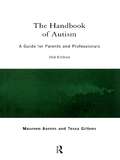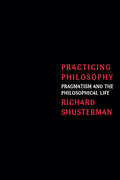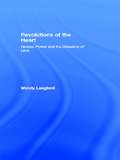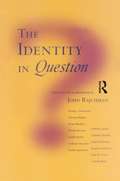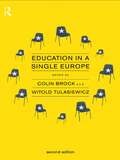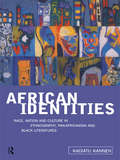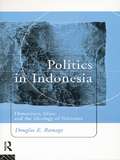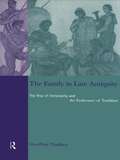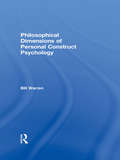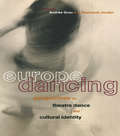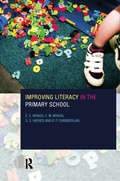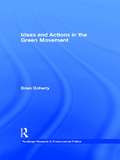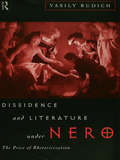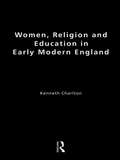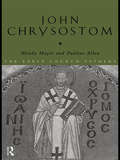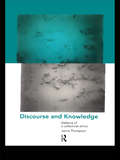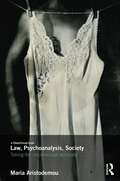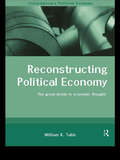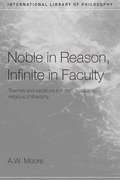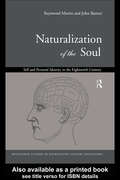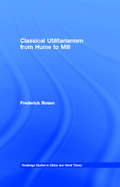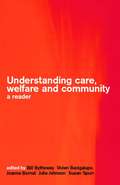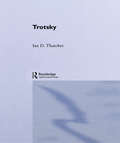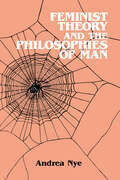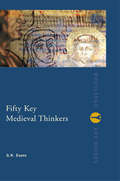Special Collections
Benetech’s Global Certified Accessible Titles
Description: Benetech’s GCA program is the first independent third-party EPUB certification to verify ebook accessibility. By creating content that is born accessible, publishers can meet the needs of all readers. Learn more: https://bornaccessible.benetech.org/
- Table View
- List View
The Handbook of Autism
by Maureen Aarons and Tessa GittensThis updated edition of the Handbook of Autism explores and expands on the practical and jargon free information of the best-selling first edition. The authors dispel many of the myths surrounding this puzzling and complex disorder. They provide practical information that makes sense, covering both medical and educational issues.Revised research and new case-studies, including follow-ups to the case-studies featured in the first edition reflect the developments made over the last eight years both in the understanding and management of autism. A list of contacts and services at the back of the book underlines its practical approach.
Practicing Philosophy
by Richard ShustermanApplying contemporary pragmatism to the crucial question of how philosophy can help us live better, Shusterman develops his distinctive aesthetic model of philosophical living that includes politics, somatics, and ethnicity, while critically engaging the rival views of Dewey, Wittgenstein, and Foucault, as well as Rorty, Putnam, Goodman, Habermas, and Cavell.
Revolutions of the Heart
by Wendy LangfordThis book looks at how heterosexual relationships really work. Author?? argues that the process of falling in love is just a brief holiday from the gender roles which quickly reassert themselves in their old forms. Topics covered include romantic love, the problem of desire and the trouble with love.
The Identity in Question
by John RajchmanFirst published in 1996. Routledge is an imprint of Taylor & Francis, an informa company.
Education in a Single Europe
by Colin Brock and Witold TulasiewiczThis book brings together contributors from the different member states of the European Union in order to understand the different degrees of subscription to the concept of Europe and the role education plays in such a process. This second edition includes the new countries which have become part of the union and also considers recent developments in policy and practice. Countries covered are: Austria; Belgium; Denmark; Finland; France; Germany; Greece; Ireland; Italy; Luxembourg; Netherlands; Portugal; Spain; Sweden and the UK. All sectors of education are dealt with in each case and the central theme of the European dimension is examined throughout.
African Identities
by Kadiatu KannehThis fascinating and well researched study explores the meaning generated by `Africa' and `Blackness' throughout the century. Using literary texts, autobiography, ethnography, and historical documents, African Identities discusses how ideas of Africa as an origin, as a cultural whole, or as a complicated political problematic, emerge as signifiers for analysis of modernity, nationhood and racial difference. Kanneh provides detailed readings of a range of literary texts, including novels by: * Toni Morrison * Alice Walker * Gloria Naylor * Ngugi Wa Thiong'o * Chinua Achebe * and V.S. Naipaul. For anyone interested in literature, history, anthropology, political writing, feminist or cultural analysis, this book opens up new areas of thought across disciplines.
Politics in Indonesia
by Douglas E. RamagePolitics in Indonesia describes the attitudes, aspirations and frustrations of the key players in Indonesian politics as they struggle to shape the future. The book focuses on the role of political Islam; Douglas E. Ramage shows that the state has been remarkably successful in maintaining secular political institutions in a predominantly Muslim society. He analyses the way in which political questions are framed with reference to the national ideology, the Pancasila.
The Family in Late Antiquity
by Geoffrey NathanThe Family in Late Antiquity offers a challenging, well-argued and coherent study of the family in the late Roman world and the influence of the emerging Christian religion on its structure and value.Before the Roman Empire's political disintegration in the west, enormous political, religious and cultural changes took place in the period of late antiquity. This book is the first comprehensive study of the family in the later Roman Empire, from approximately 300 AD to 550 AD. Geoffrey Nathan analyses the classical Roman family as well as early Christian notions of this most basic unit of social organisation. Using these models as a contextual backdrop, he then explores marriage, children, domestic servitude, and other familial institutions in late antiquity. He brings together a diverse collection of sources, transcending traditional studies that have centred on the legal record.
Philosophical Dimensions of Personal Construct Psychology
by Bill WarrenThis book traces the philosophical history of Personal Construct Psychology through the broad and complex tradition of phenomenology and thinkers such as Spinoza, Hegel and Heidegger. The author also gives credit to the influence of general creative and dramatic literature across a variety of cultures. Specific issues addressed in depth include the position of Personal Construct Psychology with regard to philosophy of science, determinism and free will, concepts of mental illness and the implications for social and political philosophy.
Europe Dancing
by Andree Grau and Stephanie JordanEurope Dancing examines the dance cultures and movements which have developed in Europe since the Second World War. Nine countries are represented in this unique collaboration between European dance scholars. The contributors chart the art form, and discuss the outside influences which have shaped it. This comprehensive book explores: * questions of identity within individual countries, within Europe, and in relation to the USA * the East/West cultural division * the development of state subsidy for dance * the rise of contemporary dance as an 'alternative' genre * the implications for dance of political, economic and social change. Useful historical charts are included to trace significant dance and political events throughout the twentieth century in each country. Never before has this information been gathered together in one place. This book is essential reading for everyone interested in dance and its growth and development in recent years.
Improving Literacy in the Primary School
by Prof E Wragg and E. C. Wragg and G. S. Haynes and R. P. ChamberlinOne of the most important challenges teachers face is making sure children can read. It is an absolutely crucial skill, and current educational policy is giving it a very high priority.Based on one of the largest studies ever undertaken of what primary schools do to improve literacy, this book reports what Professor Ted Wragg and his research team found.The importance placed on literacy has never been greater. When children learn to read, they are laying the foundations for their entire educational future. Effective teachers can make a huge difference, as a poor start can hinder children throughout their schooling and beyond.By looking at what actually goes on in classrooms, this volume provides an invaluable insight into what happens to children and how their reading progresses. It shows how particular teachers manage the improvement of their pupils' reading levels, and also follows individual pupils through a school year.This is a very readbale account of a fascinating and crucial area of research that is highly topical. Every class teacher should read it.
Ideas and Actions in the Green Movement
by Brian DohertyThe 'Western' green movement has grown rapidly in the last three decades: green ministers are in government in several European countries, Greenpeace has millions of paying supporters, and green direct action against roads, GM crops, the WTO and neo-liberalism, have become ubiquitous.The author argues that 'greens' share a common ideological framework but are divided over strategy. Using social movement theory and drawing on research from many countries, he shows how the green movement became more differentiated over time, as groups had to face the task of deciding what kind of action was appropriate.In the breadth of its coverage and its novel focus on the relationship between green ideas and action, this book makes an important contribution to the understanding of green politics.
Dissidence and Literature Under Nero
by Vasily RudichThis work inquires into the impact of dissident sensibilities on the writings of the major Neronian authors. It offers a detailed and innovative analysis of essays, poetry and fiction written by Seneca, Lucan and Petronius, and illuminates their psychological and moral anguish.The study is intended as a companion volume to Vasily Rudich's earlier work Political Dissidence under Nero: The Price of Dissimulation, where he discussed the ways in which 'dissident sensibilities' of the Neronians affected their actual behaviour. Dissidence and Literature under Nero extends this analysis to show how the same sensibilities became manifest in the texts written by the Neronian authors. It explores the pressures on authors under a repressive regime, who strive to maintain their artistic integrity.Thus the argument of this book can be seen as a comparison between the predicament of a Neronian dissident and the situation of the postmodern intellectual. It will interest professional classicists and the wider audience concerned with the ongoing debate on the benefits and perils of rhetorical discourse.
Women, Religion and Education in Early Modern England
by Kenneth CharltonWomen, Religion and Education in Early Modern England is a study of the nature and extent of the education of women in the context of both Protestant and Catholic ideological debates. Examining the role of women both as recipients and agents of religious instruction, the author assesses the nature of power endowed in women through religious education, and the restraints and freedoms this brought.
John Chrysostom
by Pauline Allen and Wendy MayerFirst published in 1999. Routledge is an imprint of Taylor & Francis, an informa company.
Discourse and Knowledge
by Janna ThompsonEthical disagreement is a fact of social life. We disagree about issues such as abortion, euthanasia, the meaning of justice and the treatment of animals, and our debates often fail to reach a consensus. Some philosophers think that this means there is no objective knowledge about morality. Discourse and Knowledge takes a radically different approach to the defence of ethical rationality. It claims that there is a correct solution to ethical controversies, but that ethical decisions have to be made collectively. Written specifically for those studying or teaching ethics or moral theory,Discourse and Knowledge will also be ideal for those on courses on social theory, ethics or feminist philosophy.
Law, Psychoanalysis, Society
by Maria Aristodemou'I swear to tell the truth, the whole truth, and nothing but the truth' we say in a court of law. 'In a court of law, the truth is precisely what we will not say', says Lacan. ‘If God is dead, everything is permitted’, writes Dostoyevsky. ‘If God is dead, everything is prohibited’, responds Lacan. ‘I think, therefore I am’, reasons Descartes. ‘I am where I do not think’, concludes Lacan. What are we to make of Lacan’s inversions of these mottos? And what are the implications for the legal system if we take them seriously? This book puts the legal subject on the couch and explores the incestuous relationship between law and desire, enjoyment and transgression, freedom and subjection, ethics and atheism. The process of analysis problematizes fundamental tenets of the legal system, leading the patient to rethink long-held beliefs: terms like ‘guilt’ and ‘innocence’, ‘truth’ and ‘lies’, ‘reason’ and ‘reality’, ‘freedom’ and ‘responsibility’, ‘cause’ and ‘punishment’, acquire new and surprising meanings. By the end of these sessions, the patient is left wondering, along with Freud her analyst, whether ‘it is not psychology that deserves the mockery but the procedure of judicial enquiry’. A unique study on the nexus of Law and Psychoanalysis, this book will interest students and scholars of both subjects, as well as general readers looking to explore this perverse and fascinating relationship.
Reconstructing Political Economy
by William K. TabbThis volume offers an original perspective on the questions the great economists have asked and looks at their significance for todays world. Written in a provocative and accessible style, it examines how the diverse traditions of political economy have conceptualised economic issues, events and theory. Going beyond the orthodoxies of mainstream economics it shows the relevance of political economy to the debates on the economic meaning of our times. Reconstructing Political Economy is a timely and thought-provoking contribution to a political economy for our time. In this light it offers fresh insights into such issues as modern theories of growth, the historic relations between state and market and the significance of globalisation for modern societies.
Noble in Reason, Infinite in Faculty
by A.W. MooreIn this bold and innovative new work, Adrian Moore poses the question of whether it is possible for ethical thinking to be grounded in pure reason. In order to understand and answer this question, he takes a refreshing and challenging look at Kant’s moral and religious philosophy. Identifying three Kantian Themes – morality, freedom and religion – and presenting variations on each of these themes in turn, Moore concedes that there are difficulties with the Kantian view that morality can be governed by ‘pure’ reason. He does however defend a closely related view involving a notion of reason as socially and culturally conditioned. In the course of doing this, Moore considers in detail, ideas at the heart of Kant’s thought, such as the categorical imperative, free will, evil, hope, eternal life and God. He also makes creative use of the ideas in contemporary philosophy, both within the analytic tradition and outside it, such as ‘thick’ ethical concepts, forms of life and ‘becoming those that we are’. Throughout the book, a guiding precept is that to be rational is to make sense, and that nothing is of greater value to use than making sense.
Naturalization of the Soul
by John Barresi and Raymond MartinNaturalization of the Soul charts the development of the concepts of soul and self in Western thought, from Plato to the present. It fills an important gap in intellectual history by being the first book to emphasize the enormous intellectual transformation in the eighteenth century, when the religious 'soul' was replaced first by a philosophical 'self' and then by a scientific 'mind'. The authors show that many supposedly contemporary theories of the self were actually discussed in the eighteenth century, and recognize the status of William Hazlitt as one of the most important Personal Identity theorists of the British Enlightenment, for his direct relevance to contemporary thinking.Now available in paperback, Naturaliazation of the Soul is essential reading for anyone interested in the issues at the core of the Western philosophical tradition.
Classical Utilitarianism from Hume to Mill
by Frederick RosenThis book presents a new interpretation of the principle of utility in moral and political theory based on the writings of the classical utilitarians from Hume to J.S. Mill. Discussion of utility in writers such as Adam Smith, William Paley and Jeremy Bentham is included.
Understanding Care, Welfare and Community
by Julia Johnson and Vivien Bacigalupo and Joanna Bornat and Bill Bytheway and Susan SpurrCare, welfare and community are three key concepts in contemporary social policy. This reader covers a wide range of topics associated with them and relevant to the delivery of care and support to adults. It includes a wide-ranging collection of articles by leading writers and researchers, some previously published, some newly commissioned. It also has first-hand accounts by users and providers of care and welfare in the community. Groups covered include people with mental health problems, homeless people, older people, people with learning difficulties and people with impairments. The focus throughout is on how policies and practice can be developed appropriately and sensitively through an understanding of current issues.
The 40 chapters are grouped into four sections, each with an introduction. Five of the chapters are made up of extracts from a wide range of documents and testimonies.
Most of the material relates to a diverse turn-of-the-century Britain, but this is set in a wider context enabling the student to explore the alternative realities of other countries and other times.
Understanding Care, Welfare and Community provides an integrated, multidisciplinary overview of the many different aspects of community care. It is appropriate for students and professionals following a wide range of courses in social work, nursing, care, health, social policy, medicine, voluntary work and welfare services. It will also be a valuable resource for carers and practitioners, teachers and policy makers.
Trotsky
by Ian D. ThatcherThis new biography provides a full account of Leon Trotsky's political life, based upon a wealth of primary sources, including previously unpublished material. Ian D. Thatcher paints a new picture of Trotsky's standing in Russian and world history. Key myths about Trotsky's heroic work as a revolutionary, especially in Russia's first revolution of 1905 and the Russian Civil War, are thrown into question. Although Trotsky had a limited understanding of crucial contemporary events such as Hitler's rise to power, he was an important thinker and politician, not least as a trenchant critic of Stalin's version of communism.
Feminist Theory and the Philosophies of Man
by Andrea NyeFirst published in 1990. Routledge is an imprint of Taylor & Francis, an informa company.
Fifty Key Medieval Thinkers
by G.R. EvansFocussing on individuals whose ideas shaped intellectual life between 400 and 1500, Fifty Key Medieval Thinkers is an accessible introduction to those religious, philosophical and political concepts central to the medieval worldview. Including such diverse figures as Bede and Wyclif, each entry presents a biographical outline, a list of works and a summary of their main theories, alongside suggestions for further reading. Chronologically arranged, and with an introductory essay which presents important themes in context, this volume is an invaluable reference tool for all students of Medieval Europe.
